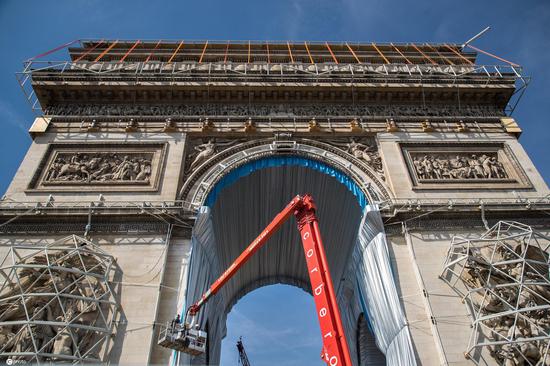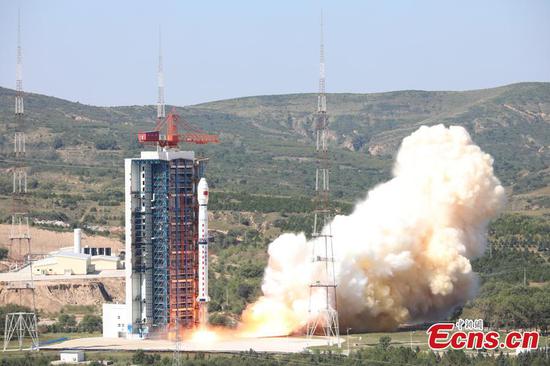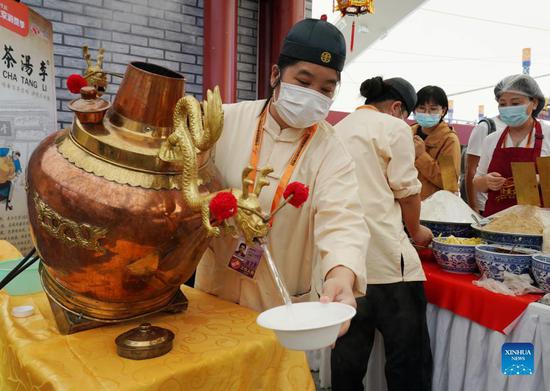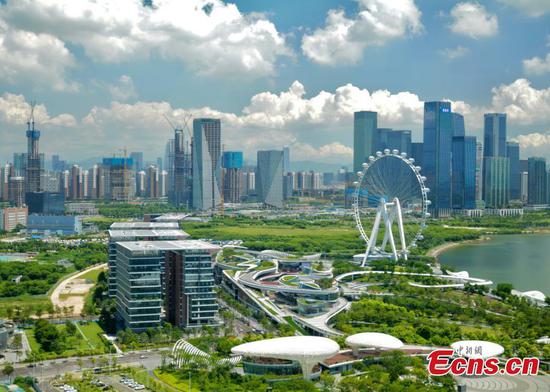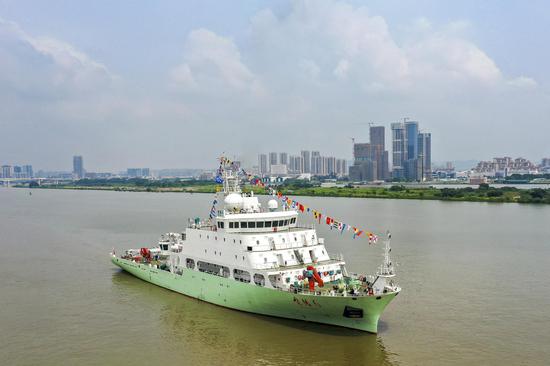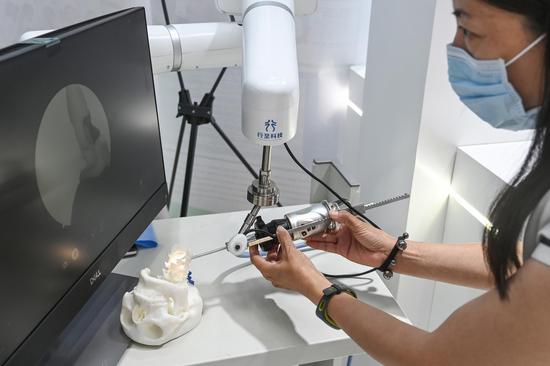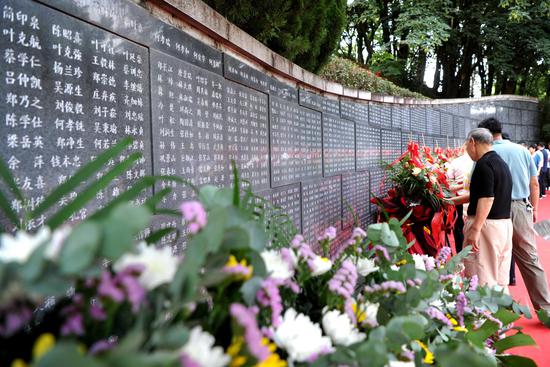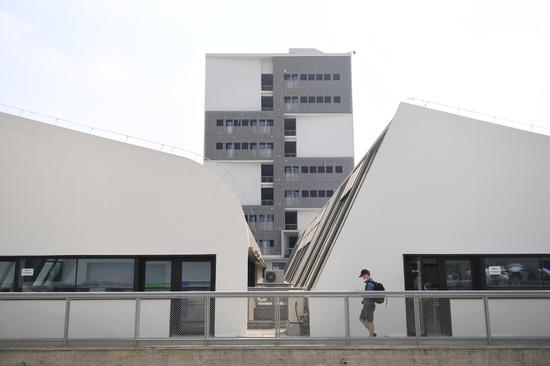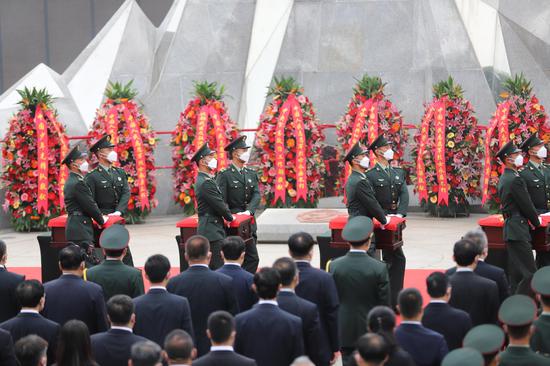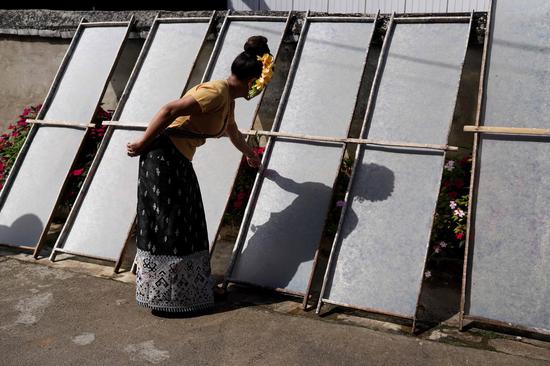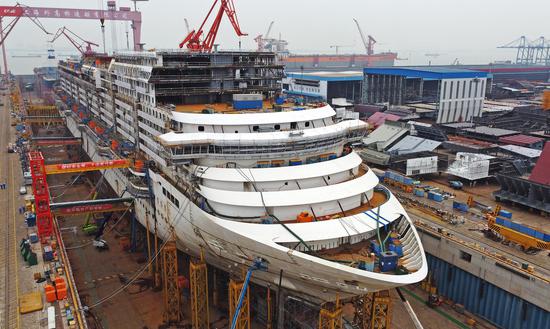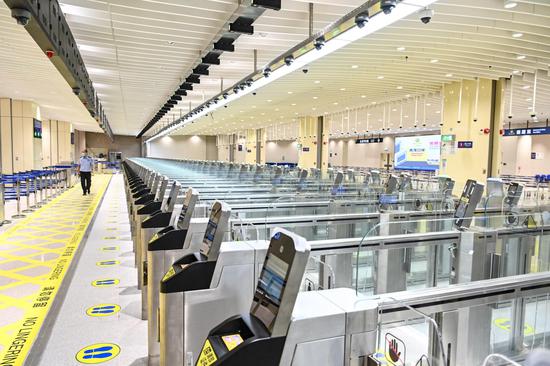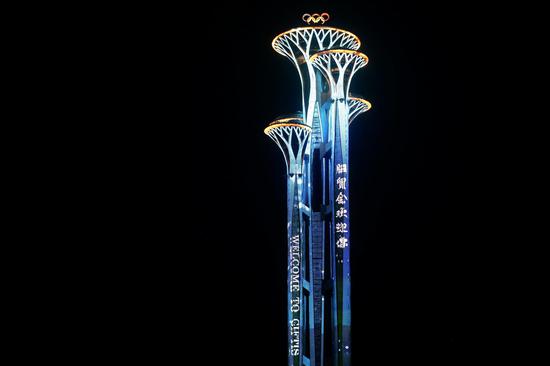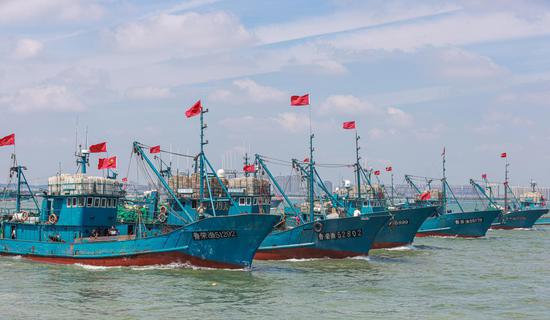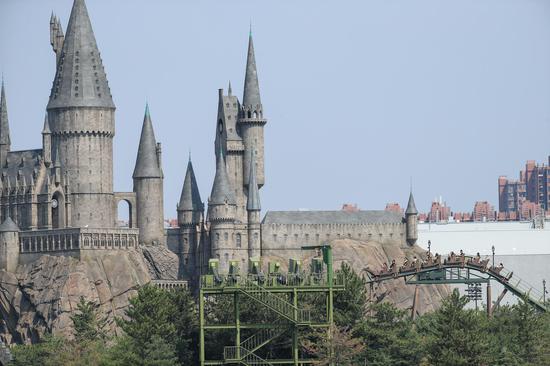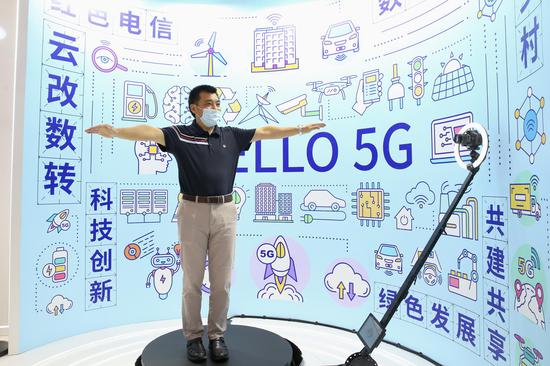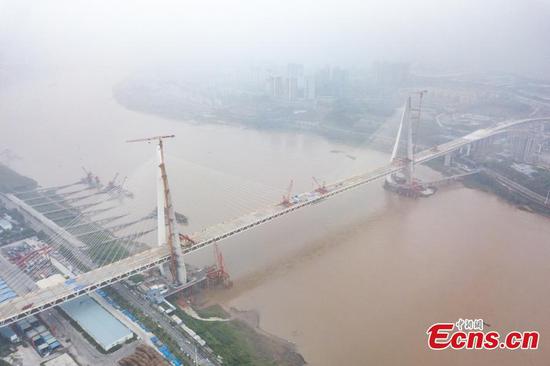After nearly two decades of absence, convenience stores have begun to operate again inside select Beijing subway stations for a trial run, and more such stores are expected to be launched later to improve comprehensive service for straphangers.
On July 25, three convenience stores opened at subway stations in Beijing. They are a Deligogo store in Qingnian Lu Station on Line 6, a JD convenience store in Caishikou Station on Line 7 and a Lawson shop in Hepingli Beijie Station on Line 5.These three brands will go through a soft opening period of one year, and the authorities concerned will decide whether to open more such stores later.
Major cities such as Shanghai, Guangzhou in Guangdong province, Hangzhou in Zhejiang province and Chengdu in Sichuan province have operated a large number of convenience stores in subway stations for a long time and their management systems are mature. Beijing, the capital, considers more elements such as guaranteeing safety and managing passenger flow.
Back in 2002, 21 convenience stores operated by Beijing-based retailer Wumart Group were launched inside Beijing subway stations. But by 2004, they were all closed due to safety considerations.
Until August 2019, the Beijing Commerce Bureau issued a guideline allowing commercial facilities to be set up at transportation hubs such as subway stations.
Li Jincan, an analyst at the Lead-Leo Research Institute, a market research provider, said: "The relaxation of the policy and the new launch of convenience stores can help tap consumer demand for more convenience services. Looking ahead, supporting commercial facilities available at Beijing subway stations are expected to further increase.
"The commercial business inside Beijing subway stations has been developing constantly, but what has been available is mainly via unmanned vending machines. Introducing convenience stores has been a breakthrough for Beijing subway stations. It will help optimize the business environment at public transport facilities in the capital.
"With the ongoing consumption upgrade trend, it is inevitable for retailers to introduce more diversified commercial forms. Convenience store chains of different brands are also constantly innovating themselves and trying to attract more young consumers."
After taking surveys of straphangers and doing analysis based on passenger flow data, the three convenience stores have been placed in areas with less dense footfall traffic. In addition, abundant space will be made available for passengers to walk in and around stores, especially during rush hours, Beijing Subway said.
Earlier, 70 percent of commuters surveyed by Beijing Subway said they desire improved service quality in the capital's subway stations, especially more convenient service facilities and improved services.
In particular, passengers have shown demand for the availability of both hot and cold drinks, ready-to-eat foods and handy meal boxes inside subway stations, Beijing Subway said earlier on its official Weibo account.
The Lawson shop located at Hepingli Beijie Station, a fairly small convenience store that occupies 10 square meters, offers various desserts such as frozen moon cakes and rice balls.
At the JD convenience store, which is affiliated with e-commerce giant JD, the store offers various services besides selling daily essentials.
"I can find services that offer clothing recycling, document printing, mobile phone repair and free services such as medical kits, hot water, charging and baggage storage at the JD convenience store. It will definitely make people's lives easier with such services all in one store," said Lily Chen, a 29-year-old office employee in Beijing.
In addition, the Deligogo convenience store offers a wide variety of light meals, including on-the-go foods and beverages. The store is operated by Beijing Subway and New Cooperation Trade Chain Group Co Ltd (NCS Group).
In the past two years, NCS Group has bid for multiple commercial operation spaces inside subway stations in cities such as Shijiazhuang in Hebei province, Guiyang in Guizhou province, Taiyuan in Shanxi province, and Changsha in Hunan province.
As a new industry player in the convenience store sector, Deligogo recently opened its first store in Qingnian Lu Station, and the interior design of the shop has been innovative and differs from other traditional stores.
The stylish store, taking silver as its main color, also launched a smart cabinet. Thus, consumers can order foods and drinks online through a mini program, and then pick up their purchases directly from the cabinet when they arrive at the station at a later time.
Convenience stores need to be located in areas that are easy-to-find and fulfill real-time needs of subway riders. Business retailers can also consider operating convenience stores with spaces available for passengers to dine in, thus eliminating the inconvenience of eating on subways, said LeadLeo.
The convenience store sector in China still has growth potential, and retailers need to constantly upgrade their products and services to meet new demand.
"Products and services serve as the core competence of convenience stores. Customers tend to love the new and loathe the old, and the life cycles of products have become increasingly shorter," Li of LeadLeo said.
"Convenience stores should focus on developing certain categories of products, instead of trying to attract all customers. Brick-and-mortar stores can establish online platforms, and shape an omni-channel business model that integrates online and offline businesses," Li said.
Meanwhile, the convenience store sector in China faces multiple challenges. The constantly rising costs for rent, labor and overhead have added to operational pressures faced by convenience stores. Particularly, stores in good locations need to pay higher rents and bear more operational pressures, LeadLeo said.
In addition, convenience stores usually conduct procurement at wholesale markets, and purchasing volumes are relatively small. Convenience stores' supply chain management systems and high unit product prices are at a disadvantage in terms of market competition when compared with large-scale companies and e-commerce retailers.
In some developed countries, convenience stores provide more services than selling consumer goods. In Japan, where convenience stores are densely clustered in both urban and rural areas, most stores are open 24 hours, and consumers can pay utility bills and even taxes at some stores. Convenience stores have become an indispensable part of life for Japanese.
"In China, however, most convenience stores serve as pure outlets that sell food and fast-moving consumer goods. The booming growth of the e-commerce business in the country also has some negative impact on the development of convenience stores," Li said.








